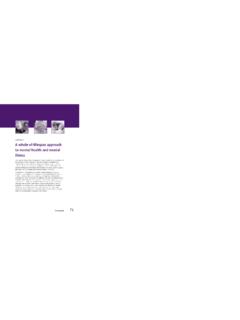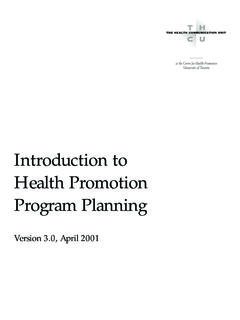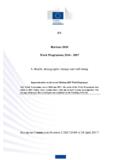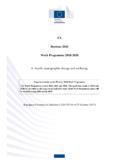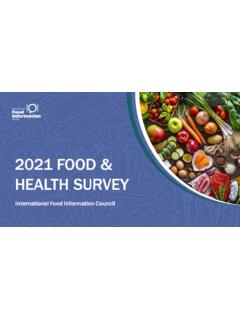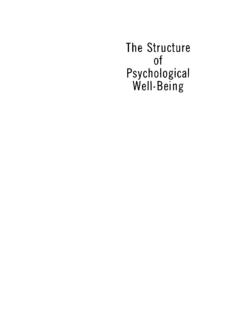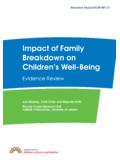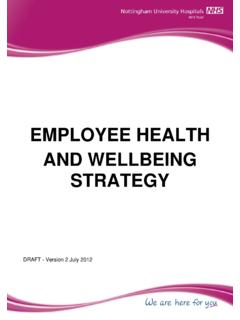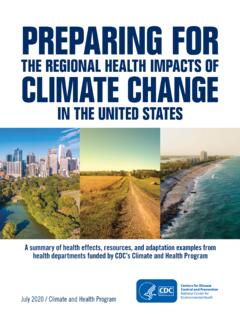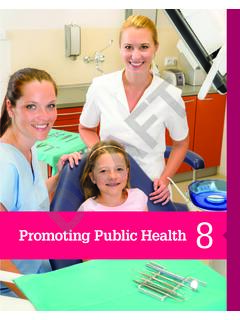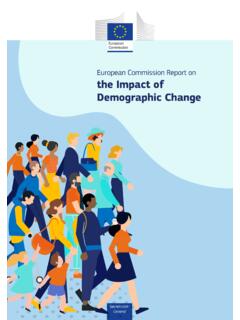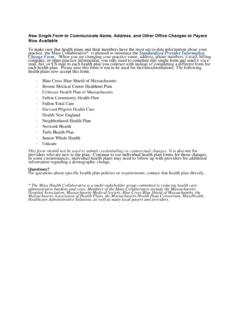Transcription of WEMWBS USER GUIDE Version 1 June 2008
1 Warwick-Edinburgh Mental well -being Scale ( WEMWBS ) User GUIDE Version 1 Professor Sarah Stewart-Brown Professor of Public health & Dr Kulsum Janmohamed Academic Clinical Fellow Warwick Medical School University of Warwick Edited by Dr Jane Parkinson Public health Adviser NHS health Scotland June 2008 i Acknowledgements The Warwick-Edinburgh Mental well -being Scale was funded by the Scottish Government s1 National Programme for Improving Mental health and well -being, commissioned by NHS health Scotland, developed by the University of Warwick and the University of Edinburgh, and is jointly owned by NHS health Scotland.
2 The University of Warwick and the University of Edinburgh. Acknowledgements go to the following: Members of the research team involved in the development and validation of WEMWBS : Ruth Fishwick (University of Warwick), Louise Hiller (University of Warwick ), Professor Stephen Joseph (University of Nottingham), Professor Stephen Platt (University of Edinburgh), Professor Sarah Stewart-Brown (University of Warwick) and Ruth Tennant (University of Warwick). Members of the research Advisory Group: Professor Glynn Lewis (University of Bristol), Dr Jane Parkinson (NHS health Scotland), Professor Jenny Secker (Anglia Ruskin University), Professor Stephen Stansfeld (University of London) and Professor Scott Weich (University of Warwick).
3 Those who commented on this manual: Dr David Gordon (NHS health Scotland), Emma Hogg (NHS health Scotland), Kate O Hara (CSIP West Midlands), and Professor Stephen Platt (University of Edinburgh). Audience It is anticipated that the audience for this manual includes researchers and practitioners who are familiar with the use of scales in evaluations. This manual does not seek to answer questions relating to what to consider for evaluation purposes. For this, the evaluation guides of NHS health Scotland provide the required information and should be referred to in the first instance ( ). Update revisions This manual will be updated and revised as necessary as further validation and data on WEMWBS become available.
4 For the current Version at any time see 1 Previously known as the Scottish Executive ii Summary The Warwick-Edinburgh Mental well -being Scale ( WEMWBS ) was developed by researchers at the Universities of Warwick and Edinburgh, with funding provided by NHS health Scotland, to enable the measurement of mental well -being of adults in the UK. WEMWBS is a 14 item scale of mental well -being covering subjective well -being and psychological functioning, in which all items are worded positively and address aspects of positive mental health . The scale is scored by summing responses to each item answered on a 1 to 5 Likert scale.
5 The minimum scale score is 14 and the maximum is 70. WEMWBS has been validated for use in the UK with those aged 16 and above. Validation involved both student and general population samples, and focus groups. People participating in studies of face validity found the scale clear, unambiguous and easy to complete. They volunteered the opinion that the scale measured mental well -being. Population scores on WEMWBS approximate to a normal distribution with no ceiling or floor effects, making the scale suitable for monitoring mental well -being in population samples. The scale is not designed to identify individuals with exceptionally high or low positive mental health , so no cut off has been developed (analogous to a mental illness cut-off on for example the GHQ 12 scale).
6 The provisional Scottish population mean score is with a 95% confidence interval of to , obtained from a combined national dataset comprising data from the health Education Population Survey 2006 (wave 12) and the well ? What do you think? 2006 survey. Scores derived from the student and population samples show a single underlying factor, interpreted to be mental well -being, with low levels of social desirability bias and expected moderate correlations with other scales of well -being. Scores for individuals are stable over a one week period. In general population samples, significant differences in WEMWBS scores were found by certain factors such as tenure, employment status, and marital status.
7 Non-significant trends were found between mental well -being and social grade (with lowest scores among those in the most deprived groups), a u-shaped relationship was found for age and small but non-significant differences were found for sex (male scores were slightly higher). Further research on WEMWBS is ongoing. This includes: establishing WEMWBS s sensitivity to change; assessing its scaling properties and the potential to reduce the number of items; and validation to determine whether WEMWBS can be used with children aged 13 to 15 years of age. Other research still required includes assessing the extent to which it is appropriate to use WEMWBS to assess mental well -being in English speaking ethnic minority populations in the UK.
8 Iii As a short and psychometrically robust scale, with no ceiling effects in population samples, WEMWBS offers promise as a tool for monitoring mental well -being at a population level. It is freely available but prospective users should register with Dr Kulsum Janmohamed or Professor Sarah Stewart-Brown If the scale is reproduced it must remain unaltered and include the copyright statement which appears with it (Appendix ii). iv Contents 1. Introduction ..1 2. A word about mental 3. What is WEMWBS and how was it developed?..3 4. Validation of WEMWBS ..4 Student populations ..4 Focus Scottish population samples.
9 8 5. Distribution of WEMWBS scores ..9 6. Comparison between WEMWBS scores and scores on the GHQ 12 .. 11 7. Variation across demographic & social groups .. 13 8. Using 15 9. Current usage of WEMWBS .. 18 10. Further validation research on 19 Bibliography .. 21 Appendix i Conditions of using WEMWBS .. 22 Appendix ii Description of scales used to assess the construct validity of WEMWBS .. 24 Appendix iii WEMWBS median scores across demographic groups .. 26 1 1. Introduction Practitioners of mental health promotion and public mental health have for many years recognised the need to focus their efforts on improving mental health as well as preventing mental illness.
10 Because of confusion relating to use of the term mental health to describe services for people with mental illness, terms like positive mental health and mental well -being have been adopted to describe these initiatives Positive mental health and mental well -being are used interchangeably in this manual). Efforts to promote mental well -being have been hampered by a lack of valid instruments which are suitable for measuring these attributes in the general population. The monitoring of population mental well -being and the evaluation of interventions to promote positive mental health has therefore had to be undertaken using instruments designed primarily to detect mental illness.
